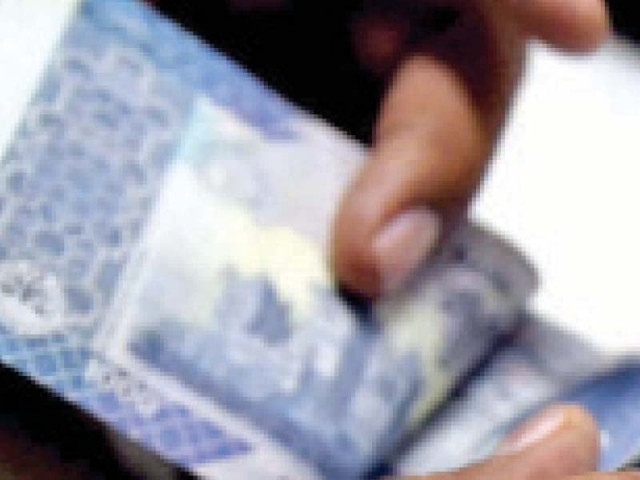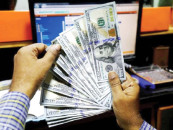Rs7.6b interest-free loans disbursed
Only 15% of target reached as banks adopted ‘go-slow’ strategy after political change

The previous government disbursed Rs7.6 billion in loans under the Kamyab Pakistan Programme, which was equal to only 15% of the revised target, as banks adopted a ‘go-slow’ strategy after the change of political setup.
From November till March-end - a week before the end of Pakistan Tehreek-e-Insaf (PTI) government - the partner institutions disbursed Rs7.6 billion among 48,237 beneficiaries, according to data compiled by the Ministry of Finance.
The figure was quite low when compared with what former prime minister Imran Khan wanted to disburse among the poor and low middle-income groups.
In October last year, Imran Khan launched the programme to disburse interest-free loans to help people start their own business, buy agricultural inputs and build homes.
Initially, the previous government wanted to give Rs1.4 trillion worth of loans to millions of beneficiaries in three years. But the cabinet approved only Rs228 billion worth of programmes that it wanted to disburse among 738,000 people till August next year aimed at addressing concerns of the International Monetary Fund (IMF).
The reduced programme target was Rs10 billion a month but the actual average disbursement during the first five months of the implementation period remained at Rs1.5 billion - far lower than the revised target, showed the statistics.
Akhuwat - a microfinance institution - disbursed Rs4.8 billion in loans among 27,328 people as of the end of March.
Disbursements by The Bank of Punjab through the National Rural Support Programme (NRSP) stood at Rs2.8 billion, which was given to about 20,909 clients, according to the finance ministry officials.
Partner banks have informally told the microfinance institutions to “go slow” and they have almost stopped disbursements due to the change in government, the head of a microfinance institution revealed.
The institution has requested the Ministry of Finance to allow Rs10 billion more disbursements to meet the commitments.
It is most unfortunate that public welfare programmes such as the Kamyab Pakistan Programme are to be curtailed, said former finance minister Shaukat Tarin, who was behind the launch of the programme.
“These are interest-free programmes for the poor. Have some mercy for the poor,” tweeted Tarin on Monday.
He said that both The Bank of Punjab and National Bank of Pakistan had told the microfinance institutions to adopt a ‘go-slow’ strategy.
However, the Ministry of Finance has not yet officially issued instructions to the partner banks of microfinance institutions to roll back the programme.
It is quite obvious that the programme will be reviewed by the new government, said the head of a partner institute while talking to The Express Tribune.
Tarin maintained that the programme size was already limited and no major subsidies were involved, thus, there was no rationale to cut the programme size or abandon it.
Where the previous government disbursed Rs7.6 billion among the most deserving people, it also doled out hundreds of billions of rupees among the richest class.
Under the Temporary Economic Refinance Facility (TERF), the State Bank of Pakistan (SBP) disbursed Rs426 billion among the 678 richest people, said Daniyal Aziz, senior PML-N leader, while speaking at the Express News programme - The Review.
Aziz said that the Rs426 billion TERF loans not only fueled inflation but also brought the rupee under pressure when industrialists opened letters of credit for import of machinery under the TERF scheme.
The Kamyab Pakistan Programme was the brainchild of Tarin and was aimed at lifting people out of poverty and supporting low-income groups by providing them interest-free loans of up to Rs500,000 for doing business and procuring inputs and machinery.
However, under an agreement with the IMF, the last government fixed the maximum loan disbursement at Rs10 billion a month, far lower than the Rs43 billion initially considered.
According to the plan approved by the previous cabinet, a major chunk - Rs152 billion, or 67% of total loans - was to go to 152,100 people to enable them to buy low-cost housing units during fiscal years 2021-22 and 2022-23.
Under the scheme, the government had planned to disburse Rs52.3 billion, or 23% of loans, among 348,480 beneficiaries in the remaining two years. Loans of up to Rs500,000 will be given.
Finance ministry statistics showed that Akhuwat disbursed Rs3.5 billion under business loans among 24,384 people from November till the end of March of current fiscal year.
It also gave Rs1.25 billion in house financing to 2,579 people and Rs370 million was distributed among 365 farmers by the end of March.
NRSP disbursed Rs884 million for business among over 4,000 people and Rs1.9 billion was given to 16,822 farmers for procurement of inputs and machinery, according to the official statistics.
Published in The Express Tribune, April 19th, 2022.
Like Business on Facebook, follow @TribuneBiz on Twitter to stay informed and join in the conversation.



















COMMENTS
Comments are moderated and generally will be posted if they are on-topic and not abusive.
For more information, please see our Comments FAQ